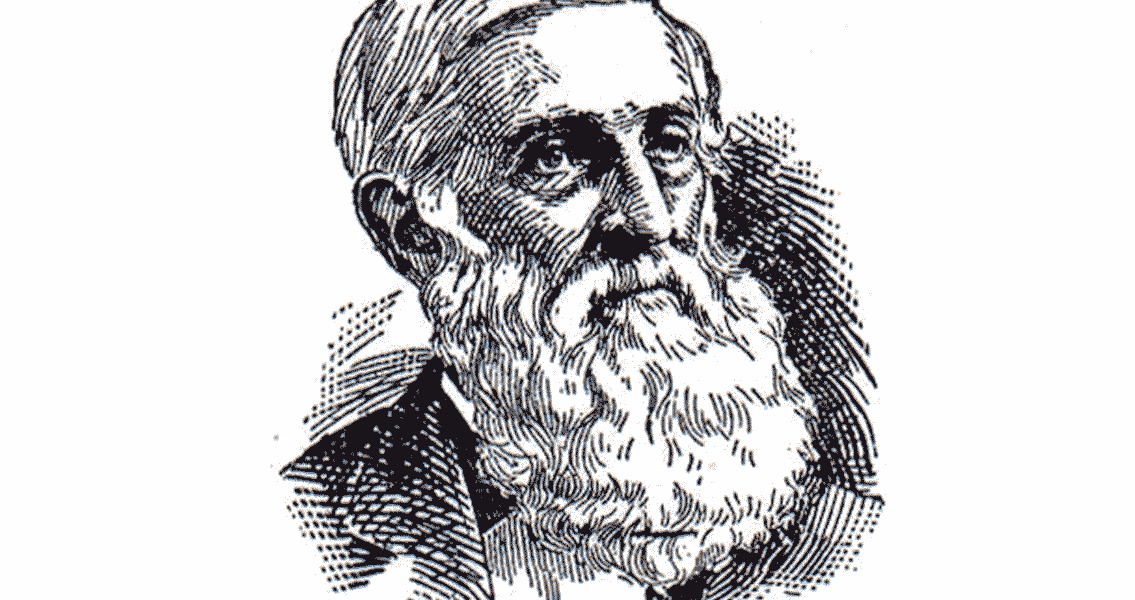<![CDATA[The week that the people of the United States have celebrated Thanksgiving, an event synonymous with the identity of the country, seems the perfect time to look at one of the key texts in American culture. George Bancroft is often referred to as 'the father of American history', and his ten volume work 'The History of the United States of America', was a pioneering study of the origin and development of the USA. Bancroft was born in 1800 in Worcester, Massachusetts. He was the eighth of thirteen children, bought up in a rural household. His father, Aaron Bancroft, was the founder of Worcester's Second Congregational Society and the eventual president of the American Unitarian Association. At thirteen, Bancroft enrolled at Harvard, which at this point was still struggling to establish itself as an institution for higher education. His studies there focused heavily on moral philosophy and literature, and seemed to set him up for a career in the church. A key event in his intellectual development came in 1818, when he was offered the chance to study in Europe. He went on to spend four years on the continent, touring around different universities and taking in a variety of disciplines while completing a doctorate in philology. He witnessed lectures by some of the great European academics of the period, such as Goethe and Hegel, before eventually returning to the US. The experience broadened his horizons and would allow him to view the United States from a new, international perspective. There are two key considerations that need to be made when reading Bancroft's 'History of the United States'. Firstly, the influence he took from European philosophers and historians in shaping his methodology. Secondly, that he himself played a very active and passionate role in US politics - his 'History' can very much be viewed as an extension of his political views. Bancroft entered national politics in 1844, campaigning for Democratic presidential candidate James K. Polk. A key political idea behind the campaign was the drive to liberalise all of North America. When Polk was elected, he appointed Bancroft his secretary of the Navy. During the Mexican War, it was Bancroft who ordered American forces to capture California from Mexico - "taking possession of the wilderness". Bancroft seemed to truly believe that America had a role to play as the bringer of civilisation. This was an idea reflected in his 'History', the first volume of which had been published in 1834. The book argued that the United States' social and political system represented the highest point yet reached in human history. This idea, that the American government was the one best designed to serve the needs of the people, provided justification for the conquest of other territories in the region - as it would be in the people's best interests. Similarly, it explains Bancroft's support for the revolutions and unrest in Europe in the middle of the nineteenth century - because the Old World was following the republican example set by the New. The final volume of Bancroft's history wouldn't be published until after the American Civil War, in 1874. One of the most fascinating features of the ten volume history is that the extended period of time it took to create allows the reader to see the author being influenced by external events. The Civil War for instance, greatly dented Bancroft's faith in the durability of the United States. During the war he'd switched his allegiances, from the pro-slavery Democrats to the abolitionist Republicans. Although the general theme of Bancroft's analysis remained the same, it's fascinating to see the impact history had on the historian. Bancroft's 'History of the United States' is so well regarded because of the lengths the writer went to in creating it. The writing process took so long, partly because of his political commitments, but also due to the effort he went to in compiling primary sources. Previously, historians of the United States tended to just be collectors or archivists. Bancroft, influenced by his stay in Europe, applied an analytical approach to tell the story of the United States. His narrative of American history, although heavily geared towards political and military factors, was one of the first to consider the complicated processes behind the creation of the United States.]]>
History of the United States of America
